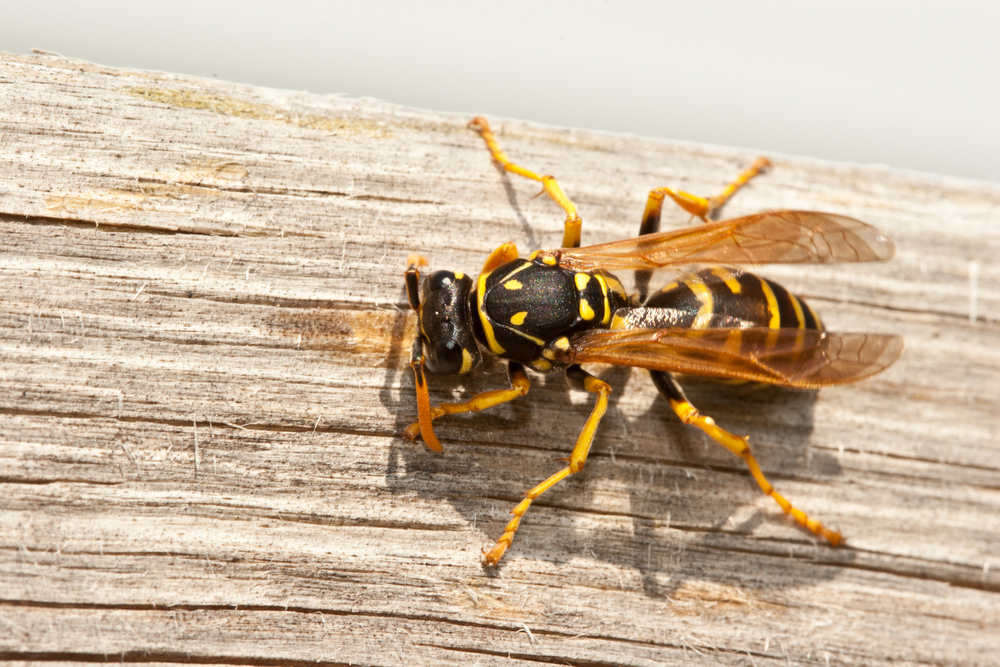Wasp Bite Gives Man a Heart Attack

Get the world’s most fascinating discoveries delivered straight to your inbox.
You are now subscribed
Your newsletter sign-up was successful
Want to add more newsletters?

Delivered Daily
Daily Newsletter
Sign up for the latest discoveries, groundbreaking research and fascinating breakthroughs that impact you and the wider world direct to your inbox.

Once a week
Life's Little Mysteries
Feed your curiosity with an exclusive mystery every week, solved with science and delivered direct to your inbox before it's seen anywhere else.

Once a week
How It Works
Sign up to our free science & technology newsletter for your weekly fix of fascinating articles, quick quizzes, amazing images, and more

Delivered daily
Space.com Newsletter
Breaking space news, the latest updates on rocket launches, skywatching events and more!

Once a month
Watch This Space
Sign up to our monthly entertainment newsletter to keep up with all our coverage of the latest sci-fi and space movies, tv shows, games and books.

Once a week
Night Sky This Week
Discover this week's must-see night sky events, moon phases, and stunning astrophotos. Sign up for our skywatching newsletter and explore the universe with us!
Join the club
Get full access to premium articles, exclusive features and a growing list of member rewards.
A sting from a yellow jacket is typically a minor annoyance, but a wasp bite turned into a major medical problem for a 45-year-old British man: He had a severe allergic reaction to the bite and, as a result, suffered a heart attack, according to a recent report of the man's case.
The man was diagnosed with Kounis syndrome, or "allergic myocardial infarction," in which a severe allergic reaction is accompanied by symptoms of chest pain (known as angina) that may progress to a heart attack.
Although Kounis syndrome is rare, there are medical case reports of the syndrome that have been linked to allergic reactions to foods, insect stings and certain drugs. [27 Oddest Medical Cases]
In this man's case, he was stung by a yellow jacket on his left arm as he got into his van. Minutes later, he began to feel dizzy and itchy all over, and a rash appeared on his body, according to the case report.
The man's left hand began to feel heavy and achy, and hours later, this pain became more frequent and spread to his left arm, shoulder and back. He called for an ambulance, and on the ride to the hospital, he suffered a heart attack, the case report said.
Paramedics were successful at resuscitating him, but doctors were initially unsure what caused this life-threatening emergency.
From allergy to emergency
The man had been stung by insects multiple times in the past, but he experienced no reaction to these bites, according to the case report's lead author, Dr. Benjamin Cross, who, at the time of the case, was a medical student at Blackpool Victoria Hospital in Blackpool, England.
Get the world’s most fascinating discoveries delivered straight to your inbox.
The man has a genetic tendency to develop allergic diseases, including a medical history of asthma and eczema, Cross said. However, the man had never had a severe allergic reaction, Cross said.
But there were some reasons to be concerned about the man's heart heath. The 45-year-old had been smoking a pack of cigarettes a day for more than 30 years, Cross told Live Science. (Smoking has been linked with an increased risk of heart disease.) Prior to this incident, the man had some buildup of plaque in his arteries, which also put his heart at risk, Cross said.
But why would an insect sting trigger a heart attack in a middle-age man?
The wasp bite most likely caused a type of white blood cell, known as mast cells, to react, which, in turn, caused the plaque in his artery to burst, Cross said. When plaques burst, it causes a clot, which blocks the artery and reduces blood flow. A loss of blood flow to an area of the heart causes heart cells to die, which results in a heart attack, Cross explained.
To repair the man's blocked artery, doctors inserted a stent. After he went home from the hospital, his allergist recommended that he receive allergy shots containing small doses of the wasp venom that initially triggered his severe allergic reaction, Cross said. This treatment will sensitize his immune system and reduce the chance that another yellow-jacket sting will cause an allergic reaction, he added.
But as a precaution, the man was advised to carry an EpiPen, which can deliver a quick dose of the hormone epinephrine, to help prevent another severe allergic reaction, Cross said.
The case report was published online Sept. 7 in the journal BMJ Case Reports.
Original article on Live Science.
Cari Nierenberg has been writing about health and wellness topics for online news outlets and print publications for more than two decades. Her work has been published by Live Science, The Washington Post, WebMD, Scientific American, among others. She has a Bachelor of Science degree in nutrition from Cornell University and a Master of Science degree in Nutrition and Communication from Boston University.
 Live Science Plus
Live Science Plus











